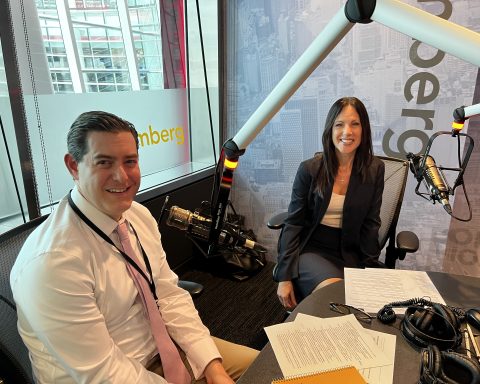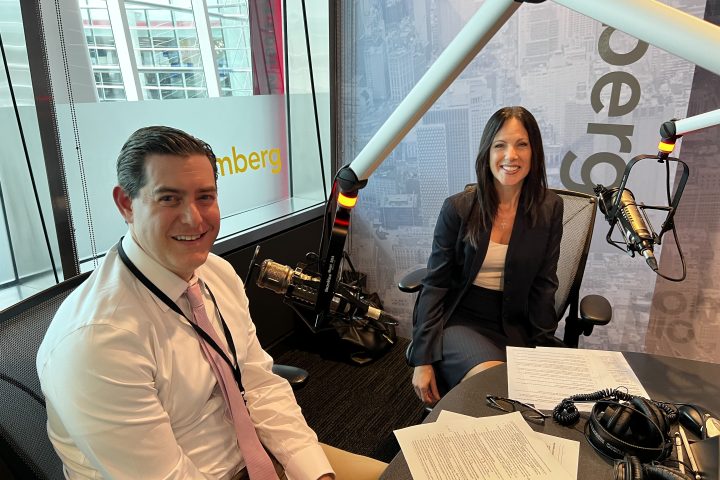Effective leadership hinges on strong communication skills. Although many leaders are eloquent speakers, being a great orator is something that must be cultivated. Ronald Reagan, known for his storytelling skills, was a trained actor. Dr. Martin Luther King Jr. honed his inspirational abilities as a church leader. Similarly, Bill Clinton mastered the art of eye contact, which allowed him to engage and connect with his audience. Although you may think the ability to be an inspiring speaker is innate, it is a skill that must be honed and practiced.
For Warren Buffet, one of the most successful businessmen in the world, successfully communicating was not always easy for him. When he was in high school and college, he was so afraid to speak that he would throw up prior to having to give a presentation in class and would often cut class to avoid having to speak. Then when he graduated from college, he wanted to address this fear, so he enrolled in a Dale Carnegie class, which he says changed his life.
Buffet tells graduating MBA students, entrepreneurs, and business leaders, “Invest in yourself and hone your communication skills- both written and verbal. It is the one easy way to become worth at least 50 percent more than you are now. His advice is substantiated by research done by the Carnegie Institute of Technology, which found 85 percent of a person’s success comes from their ability to effectively communicate, negotiate, and lead when speaking and listening.
Even if you have excellent financial skills and insights, your brainpower is only worth something if you can clearly and concisely communicate your ideas. Being an effective communicator is the key to your success and ineffective communication can be your biggest downfall. Most CFOs do not see communication as their strong suit, even though they spend at least half of every workday communicating with colleagues or clients in a variety of formats; face-to-face, virtually, or in writing.
Remember: it only takes 3 seconds to make a first impression. However, a first impression only gets your foot in the door. It does not maintain a relationship or keep others engaged. It is important to continually make great ‘first impressions,’ whether related to the risk proposal, the strategic plan, or the budget. Impressions can quickly change and are directly affected by how you communicate. Therefore, consider the impression you are making whether on the phone, Zoom or in-person. A smile, eye contact, active listening all affects how others view and value you.
Financial leaders’ communication skills enhance their performance across all aspects of their professional responsibilities, whether when documenting financial information, writing persuasive reports, or delivering memorable oral presentations. The organization depends on their CFO’s knowledge and expertise. Successful financial leaders communicate in such a way that their non-financial colleagues understand the data and nuances of their reports.
Being an effective communicator is the best way to build trust, demonstrate transparency, and work collaboratively with all stakeholders. At the heart of effective communication is also the ability to be an active listener and to understand the perspective of others in your organization. To paraphrase Lee Iacocca, a visionary automaker who led Ford and Crysler, “You can have brilliant ideas, but if you can’t get them across, your ideas won’t get you anywhere.” Iacocca honed his speaking skills as a member of his high school debate team and then by taking a Dale Carnegie course. Again, he wasn’t born a great communicator, and had to hone and practice his skills.
Although we think of speaking as verbal communication, it includes what is said verbally, vocally, and non-verbally. Effective communicators understand listening is the flipside of talking and that both are crucial to ensuring intended messages are received and understood. Research has shown that unless verbal, vocal and non-verbal communication all send the same message, words are only about 10% of a message. If there is a disconnect then the listener will put more value on tone, volume, and body language than the words said.
Sending a clear message is more than just deciding ‘what you’re going to say,’ it is understanding how you say it. This can help to ensure messages are not misunderstood. Keep in mind that although words are an important part of any message, the words, vocal, and non-verbal message are all the same, the words are not what will be remembered. Instead, what will be remembered is the non-verbal part of your message, the other 93% and they become an integral part of your message. A mismatch between words and non-verbal communication can easily send an unintended message. Think of the power of a smile and a handshake, as these non-verbal actions send a strong message even before a word is uttered.
As financial executives, it is crucial to understand that the financial literacy level of most of your colleagues is significantly lower than yours. Although they have many skills and areas of expertise, they might not fully understand the terminology, jargon and implications of the graphs, charts, and spreadsheets you present. That is why it is essential to take the time to break down the information and recommendations into manageable parts. Colleagues may not always ask questions because they are unsure what questions to ask. Be proactive, anticipate their questions and answer them before they are even asked.
The single biggest problem with communication is the illusion it has taken place. Therefore, speak clearly and concisely, use sentences that are easy to follow by avoiding jargon and abbreviations, and remember the Rule of Three. Our brains are hard-wired and after hearing three facts or details, a fourth item tends to cause our brain to forget everything!
Avoid being misunderstood. It is important to clearly enunciate, use sentences that are easy to follow, and avoid jargon and abbreviations. Changing the word emphasized in a sentence can totally change the message. Are you asking, “Tell ME what you are thinking” OR “Tell me what YOU are thinking.” The key to successful communication is being easily understood, so that what you say will be remembered.
Meaningful conversations are crucial to all relationships and lead to trust. When sharing your expertise, advice, or insights, engage in conversations rather than delivering a monologue. The more transformational the conversation the more likely your input will be heard and valued because you are both telling your perspective and asking others to share theirs.
In conclusion, mastering effective communication skills is not just a desirable skill for CFOs, it is an imperative one. As highlighted by highly accomplished and respected leaders like Ronald Reagan, Dr. Martin Luther King Jr., Bill Clinton, and Warren Buffet, being an effective communicator is a skill that can be learned and must be honed. Whether delivering compelling speeches, writing persuasive reports, or engaging in meaningful conversations, being able to communicate clearly and concisely is fundamental for success as a financial professional. Invest in your professional success by devoting time and energy into honing your communication skills. Take them to the next level! As CFOs, Controllers, Senior Financial leaders, you will be better able to build trust, demonstrate transparency, and work collaboratively when you have strong communication skills. Remember the power of effective communication; it shapes perceptions, fosters understanding, and drives meaningful change within organizations.

























